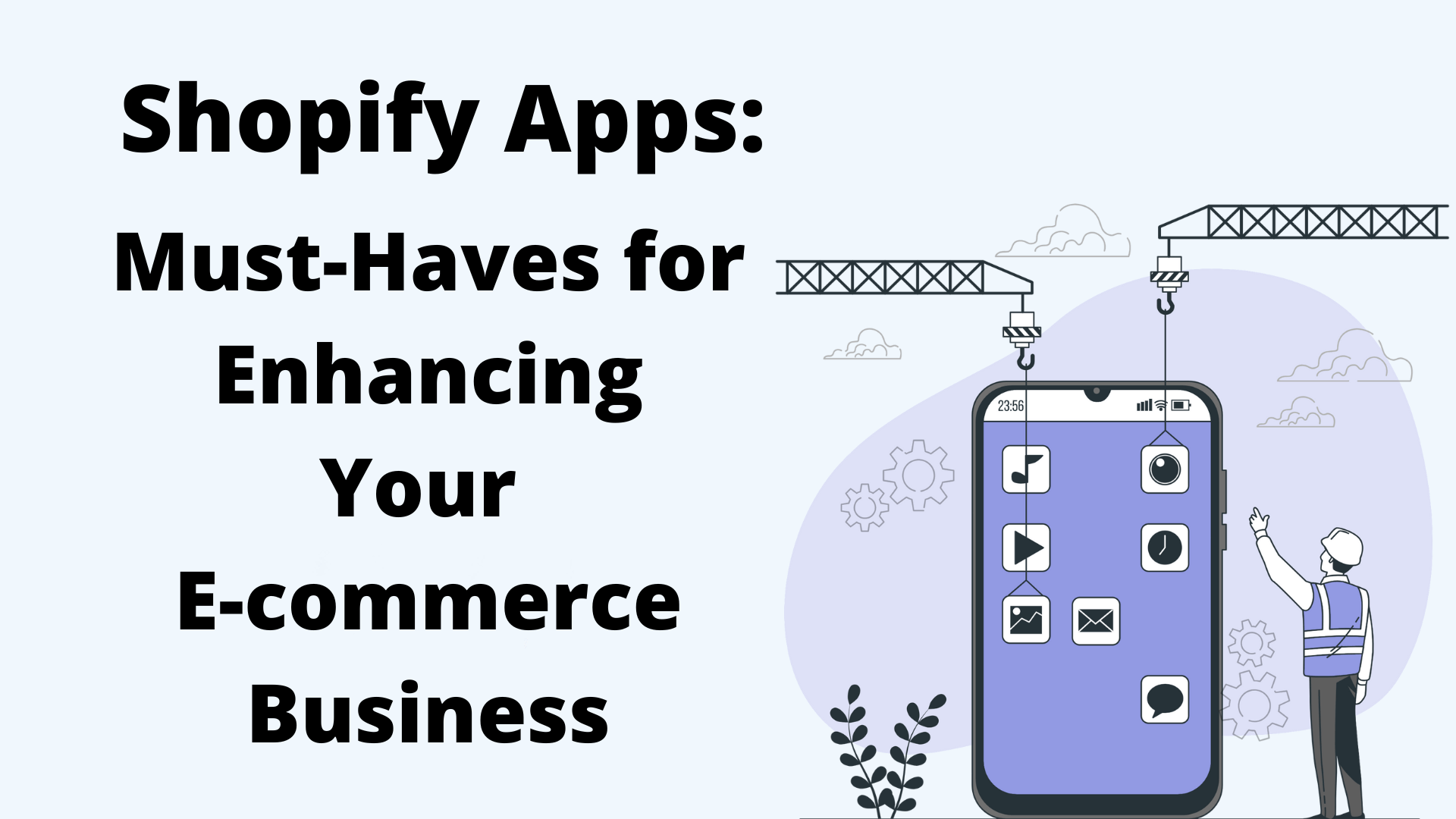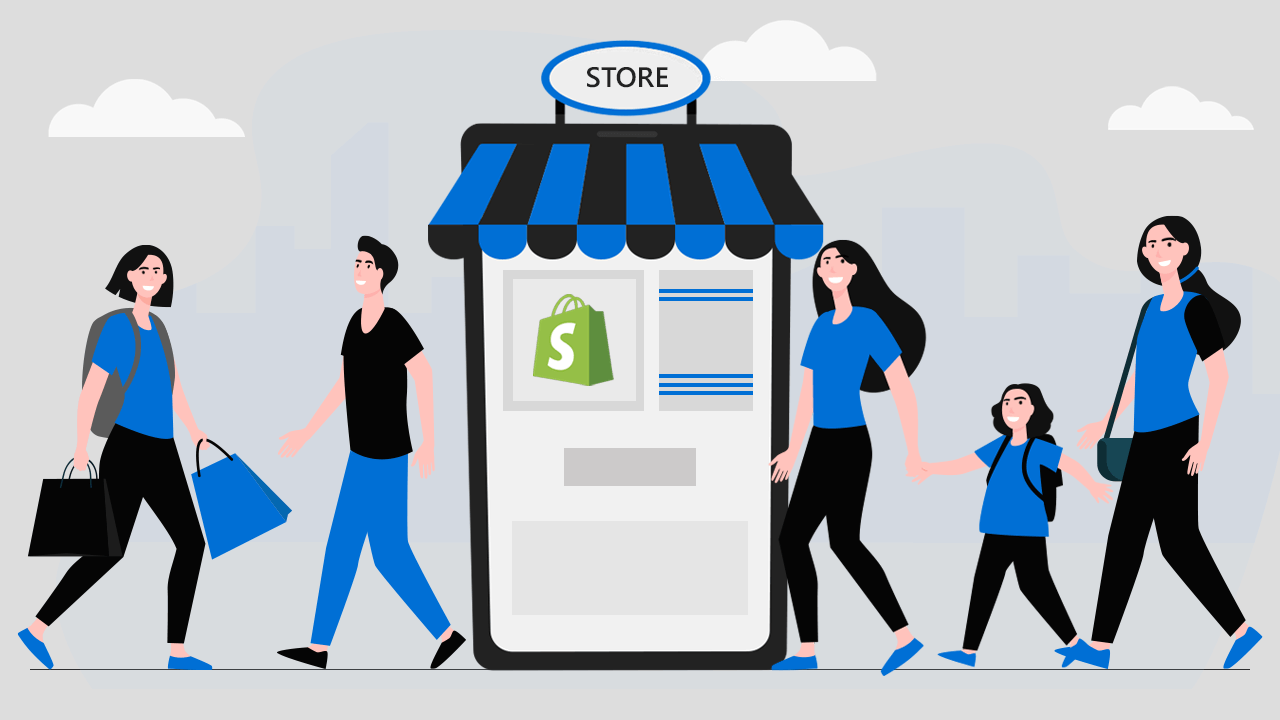
Shopify Apps offer a wide range of benefits for enhancing your e-commerce business. With Shopify's extensive app store, you have access to a plethora of apps that can improve various aspects of your online store.
One of the key benefits is the ability to improve your marketing efforts. Shopify Apps provide powerful tools for email campaigns, marketing automation, and personalized product recommendations. These apps help you reach a larger audience, increase customer engagement, and drive more sales.
Effective inventory management is crucial for any e-commerce business, and Shopify Apps can help streamline this process. With features such as stock notifications, product bundles, and stock products, you can keep track of your inventory levels, reduce the chances of overselling, and improve customer satisfaction.
Moreover, Shopify Apps also offer advanced SEO features to improve your online store's visibility on search engines. You can optimize your website for rich snippets, fix broken links, and implement SEO best practices to drive more organic traffic
Using Shopify Apps saves you time and effort by automating tasks and improving efficiency. Whether it's managing shipping rates, offering cart abandonment recovery solutions, or implementing push notifications and chat apps for better customer support, these apps help you provide a seamless shopping experience for your customers.
In conclusion, Shopify Apps are essential for enhancing your e-commerce business. With their wide range of apps, you can improve marketing, inventory management, shipping, SEO, and much more. Take advantage of these apps to save time, increase sales, and provide an excellent shopping experience for your customers.
Product Reviews
Product reviews are an essential component of any e-commerce business. They provide social proof, build trust, and help potential customers make informed purchase decisions. Shopify Apps offer a wide range of options for enhancing your product reviews and leveraging them to boost sales. With these apps, you can easily collect and display customer feedback, showcase customer photos, and even incentivize loyal customers to leave reviews. This valuable user-generated content not only acts as a testimonial to the quality of your products but also helps improve your search engine optimization by adding fresh and relevant content to your website. By utilizing these product review Import Template Shopify Apps, you can increase customer engagement, enhance your brand reputation, and ultimately drive more conversions for your e-commerce business.
Why Product Reviews are Essential for E-commerce Businesses
Product reviews play a crucial role in enhancing e-commerce businesses. They provide valuable feedback from customers and act as social proof to encourage other shoppers to make purchases. According to an eMarketer report, a staggering 98% of consumers look at reviews during the purchasing process. This shows just how important it is for businesses to prioritize collecting and showcasing customer reviews.
One key benefit of product reviews is that they provide businesses with insights into customer experiences. By listening to feedback, businesses can identify areas for improvement and address any issues that might arise. This not only helps to build trust and loyalty among customers but also enhances the overall customer experience.
Additionally, customer reviews can improve search engine optimization (SEO). Search engines, such as Google, consider user-generated content, including customer reviews, as a ranking factor. By investing in collecting and displaying customer reviews, businesses can improve their online visibility and attract more potential customers.
In conclusion, product reviews are essential for e-commerce businesses as they provide valuable customer feedback and act as social proof to encourage others to make purchases. By prioritizing and leveraging the power of customer reviews, businesses can improve customer trust, loyalty, and their overall online presence.

How to Use Product Reviews to Enhance Your E-commerce Business
Product reviews can be a powerful tool for enhancing your e-commerce business. They not only provide valuable insights into customer experiences but also influence purchasing decisions and improve search engine optimization (SEO). Here are the steps to effectively use product reviews to enhance your e-commerce business:
Step 1: Integrate a product review app into your Shopify store
To start collecting customer reviews, integrate a product review app from the Shopify app store. Choose an app that suits your business needs, offers key features such as review moderation and customization, and has positive customer reviews
Step 2: Encourage customers to leave reviews
After integrating the app, encourage your customers to leave reviews. Send follow-up emails or push notifications to ask for their feedback. Consider offering incentives such as discount codes or giveaway entries to motivate customers to share their experiences.
Step 3: Display reviews prominently
Once you start receiving product reviews, showcase them prominently on your product pages. This way, potential customers can easily access and read the reviews, which can influence their purchasing decisions.
Step 4: Leverage reviews for building trust
Use the positive reviews as social proof to build trust among potential customers. Displaying testimonials and ratings prominently across your online store can create confidence in your products and brand, ultimately increasing customer conversions.
Step 5: Act on customer feedback
Regularly monitor and respond to customer reviews. Address any issues or concerns raised by customers promptly and take necessary actions to improve their experiences. This not only shows that you value customer feedback but also helps in building loyalty and improving overall customer satisfaction.
By effectively using product reviews, you can not only influence customer purchasing decisions but also improve your SEO efforts. So, integrate a product review app into your Shopify store, encourage customers to leave reviews, and leverage their feedback to enhance your e-commerce business.
Best Practices for Collecting and Managing Product Reviews
Collecting and managing product reviews is a crucial aspect of running a successful ecommerce business. Here are some best practices to follow:
- Make it easy for customers to leave reviews: Integrate a product review app into your Shopify store and ensure that the review process is simple and user-friendly. Customers should be able to leave reviews directly on the product pages without any hassle.
- Promptly respond to reviews: Regularly monitor customer reviews and respond promptly, whether they are positive or negative. Address any issues or concerns raised by customers and demonstrate that you value their feedback. This shows transparency and a commitment to improving the customer experience.
- Encourage honest feedback: Actively encourage customers to leave reviews by sending follow-up emails or push notifications. Make sure to highlight the importance of their feedback in improving your products and services. Offer incentives such as discount codes or giveaway entries to motivate customers to leave reviews.
- Showcase reviews prominently: Once you start receiving product reviews, display them prominently on your product pages and throughout your website. This allows potential customers to easily access and read the reviews, building trust and confidence in your brand.
- Use reviews as marketing assets: Leverage positive reviews as social proof to boost your marketing efforts. Incorporate testimonials and ratings in your email campaigns, social media posts, and other promotional materials. This helps in building trust and transparency, attracting more customers, and ultimately driving more sales.
By following these best practices, you can effectively collect and manage product reviews, gather valuable customer feedback, and build trust and transparency for your ecommerce business.
Loyal Customers
Building a base of loyal customers is crucial for the success of any e-commerce business. These are the customers who keep coming back to your online store, making repeat purchases, and advocating for your brand. Loyal customers not only contribute to your revenue but also help in spreading positive word-of-mouth marketing. To enhance customer loyalty, it is important to go beyond just selling products and focus on creating exceptional customer experiences. This can be achieved through the use of Shopify apps that offer features like personalized product recommendations, referral programs, and customer support tools. By providing a seamless and personalized shopping experience, you can foster customer loyalty and turn first-time buyers into loyal, lifelong customers. With the right Shopify apps in place, you can nurture customer relationships and build a strong foundation for long-term success in the e-commerce industry.

The Value of Having Loyal Customers in Your E-commerce Business
Having loyal customers is of utmost importance in any e-commerce business, as they contribute significantly to long-term success. Customer loyalty goes beyond one-time purchases, focusing instead on building strong and ongoing relationships with buyers
Cultivating loyal customers offers several benefits. Firstly, loyal customers serve as brand advocates, spreading positive word-of-mouth marketing. This can significantly increase brand visibility and attract new customers. Secondly, loyal customers tend to spend more per transaction, leading to higher average order values and increased revenue. Additionally, retaining existing customers is usually more cost-effective than acquiring new ones, making customer loyalty a valuable asset for any e-commerce business.
To develop and retain loyal customers, e-commerce businesses can implement various strategies. One effective approach is to provide personalized experiences tailored to each customer's preferences and needs. This includes offering personalized product recommendations, timely and relevant email campaigns, and excellent customer support.
Loyalty programs are also a powerful tool for nurturing customer loyalty. These programs often reward loyal customers with exclusive discounts, early access to new products, or special perks. Such rewards incentivize customers to stay with your brand and foster a sense of appreciation and value.
In summary, loyal customers are the lifeblood of any e-commerce business. By investing in customer loyalty strategies and offering personalized experiences and rewards, ecommerce businesses can build lasting relationships, increase customer retention, and drive long-term success.
Strategies for Developing Customer Loyalty and Retention
Developing customer loyalty and retention is crucial for the long-term success of any ecommerce business. Here are some effective strategies to cultivate customer loyalty:
- Personalized Experiences: Tailor your customer's experience to their preferences and needs. Use shopify apps to provide personalized product recommendations based on their browsing and purchase history. Implement email campaigns that are timely and relevant, offering customized discounts and promotions. Excellent customer support is also essential in creating a positive and personalized experience.
- Loyalty Programs: Implement a loyalty program that rewards customers for their continued support and purchases. Offer exclusive discounts, early access to new products, and special perks to incentivize their loyalty. These programs foster a sense of appreciation and value, encouraging customers to remain loyal to your brand.
- Positive Customer Feedback: Encourage customer reviews and feedback about their experiences with your brand. Highlight and respond to positive feedback, while also addressing any negative feedback promptly and professionally. This not only helps build trust and loyalty but also provides valuable insights for improving your products and services.
- Customer Engagement: Engage with your customers through various channels, including social media, email marketing apps, and chat apps. Respond to their queries, comments, and concerns promptly, showing that their voices are heard and valued. Regularly update them about new products, promotions, and upcoming events to keep them engaged and excited about your brand.
Implementing these strategies can help retain existing customers and earn their loyalty. Providing personalized experiences and value through loyalty programs makes customers feel appreciated and understood, leading to repeat purchases and higher average order values. Positive reviews and feedback demonstrate the quality and credibility of your brand, attracting new customers through word-of-mouth marketing. Engaging with customers shows that you care, building trust and long-term relationships. By prioritizing customer loyalty and retention, e-commerce businesses can thrive in a competitive market.
How to Reward Your Most Loyal Customers
Rewarding your most loyal customers is crucial for the success and growth of your ecommerce business. These customers not only provide you with repeat business but also act as brand ambassadors, spreading positive word-of-mouth marketing and bringing in new customers. Implementing a customer loyalty program is an effective way to show appreciation for their support and further incentivize their loyalty.
One strategy for implementing a customer loyalty program is to offer rewards based on customer purchases. This can be done through points systems, where customers earn points for every dollar spent and can then redeem those points for discounts, freebies, or exclusive perks. Another strategy is to provide tiered rewards based on customer loyalty levels, offering increasingly valuable rewards as customers move up the tiers.
To further incentivize customers to refer their friends, consider integrating a referral program into your loyalty program. This can be achieved by providing customers with unique referral links or codes that they can share with friends and family. When these referrals make a purchase, both the referring customer and the new customer receive rewards or discounts. This not only encourages word-of-mouth marketing but also brings in new customers who are already familiar with and likely to trust your brand.
When it comes to implementing loyalty, rewards, and referral programs on your Shopify store, there are several apps available that can streamline the process. Some of the top Shopify apps for loyalty, rewards, and referral programs include LoyaltyLion, Smile.io, Refersion, and Growave. These apps provide easy integration, customization options, and tools to track and manage customer rewards and referrals.
In conclusion, rewarding your most loyal customers through a customer loyalty program is essential for building strong relationships, driving repeat business, and growing your e0 commerce brand. By leveraging the power of rewards and referral programs with the help of Shopify apps, you can effectively incentivize your customers to remain loyal and refer new customers to your store.
14-Day Free Trial
If you're thinking of enhancing your e-commerce business, one important aspect to consider is the availability of a free trial for potential customers. A 14-day free trial provides a risk-free opportunity for customers to experience your product or service without any initial cost. This not only helps build trust and confidence in your brand but also allows customers to explore the features and benefits of your offering. During the trial period, customers can test the functionality, usability, and value of your product, helping them make an informed decision about whether to continue using it. Offering a 14-day free trial can significantly increase customer engagement, conversions, and overall business growth.
Advantages of Offering a 14-Day Free Trial Period for Shopify Apps
Offering a 14-day free trial period for Shopify apps comes with numerous advantages for e-commerce businesses. This strategy allows entrepreneurs to fully experience the benefits of the app before committing to a purchase. By offering a free trial, businesses can attract more sign-ups and ultimately increase conversions.
A 14-day free trial gives users ample time to explore the key features of the app and understand how it can enhance their online stores. It allows them to test features like push notifications, email campaigns, search engine optimization, customer reviews, and more. This hands-on experience helps users make informed decisions on whether the app fits their specific needs.
Moreover, a free trial period also builds trust and confidence in the product. Users can fully evaluate the app's performance, customer support team, and overall user experience. This leads to increased customer satisfaction and ultimately fosters customer loyalty.
While some Shopify apps may have limitations or restrictions during the trial period, such as advanced features being available only in premium plans, the 14-day free trial still serves as a powerful tool to showcase the app's benefits and gain new customers.
In conclusion, offering a 14-day free trial period for Shopify apps is beneficial for both businesses and customers. It allows users to fully explore the app's features, while businesses can increase sign-ups and conversions. Take advantage of this strategy to enhance your e-commerce business on Shopify.
Tips for Leveraging a 14-Day Free Trial Period to Increase Signups and Conversions
Offering a 14-day free trial period for Shopify apps provides several advantages for ecommerce businesses looking to increase signups and conversions. This extended trial period allows potential customers to fully experience the app's features and benefits, increasing the likelihood of them becoming paying customers.
Firstly, a 14-day free trial provides users with ample time to explore and understand how the app can enhance their online stores. They can test key features such as push notifications, email campaigns, search engine optimization, and customer reviews, among others. This hands-on experience helps users make informed decisions on whether the app aligns with their specific needs.
Additionally, a free trial period builds trust and confidence in the product. Users can evaluate not only the app's functionalities but also the performance of the customer support team and the overall user experience. This leads to increased customer satisfaction and loyalty.
Furthermore, the 14-day free trial serves as a powerful tool to showcase the app's benefits and gain new customers. Even if certain advanced features are restricted to premium plans during the trial period, users still get a comprehensive understanding of the app's capabilities, making them more likely to convert to paying customers.
Overall, leveraging a 14-day free trial period for Shopify apps can significantly increase signups and conversions by allowing users to fully experience the app's features, building trust and confidence, and showcasing its benefits to potential customers.

Search Engine Optimization (SEO)
Search Engine Optimization (SEO) is crucial for any e-commerce business looking to improve their online visibility and drive organic traffic to their website. With the right SEO strategies, businesses can optimize their website content, meta tags, URLs, and images to rank higher in search engine results pages. By incorporating relevant keywords and improving their website's structure and navigation, businesses can attract more visitors and increase their chances of converting them into paying customers. SEO also involves optimizing the website's speed, mobile responsiveness, and user experience, which are important factors that search engines consider when ranking websites. Additionally, SEO can help businesses gain a competitive edge by appearing in rich snippets and Google Shopping results. By utilizing SEO techniques and implementing Shopify apps dedicated to SEO, e-commerce businesses can enhance their online presence and improve their chances of success in the digital marketplace.
What is SEO and Why It Matters for Your E-commerce Business
SEO stands for Search Engine Optimization, and it plays a crucial role in enhancing the online presence of e-commerce businesses. In today's digital landscape, where competition is fierce, having a strong SEO strategy is essential to drive organic traffic and increase visibility in search engine results.
For e-commerce businesses, SEO is particularly important as it helps attract potential customers who are actively searching for products or services online. By optimizing your website and content for relevant keywords, you can improve your chances of appearing at the top of search engine rankings, increasing the likelihood of attracting organic traffic and potential customers.
While Shopify is a popular e-commerce platform known for its user-friendly features, it has been criticized for its lack of built-in SEO capabilities. However, the Shopify App Store offers a wide range of SEO apps that can help enhance the platform's SEO functionality. These apps provide various key features, including optimizing meta tags, generating XML sitemaps, improving site speed, and fixing broken links.
In recent years, Shopify has made efforts to improve the overall SEO user-friendliness of its platform. It has implemented changes to allow for better customization of meta tags and URLs, making it easier for users to optimize their online stores for search engines. Additionally, Shopify now offers support for rich snippets, which can enhance the visibility and click-through rates of product listings in search results
In conclusion, SEO is essential for e-commerce businesses to improve their online presence and attract potential customers. Despite Shopify's lack of built-in SEO features, the availability of SEO apps in the Shopify App Store allows users to optimize their websites effectively. With Shopify's ongoing improvements in SEO user-friendliness, ecommerce businesses can now better harness the power of SEO to drive organic traffic and boost their online success.
 Shopify Apps offer a wide range of benefits for enhancing your e-commerce business. With Shopify's extensive app store, you have access to a plethora of apps that can improve various aspects of your online store.
One of the key benefits is the ability to improve your marketing efforts. Shopify Apps provide powerful tools for email campaigns, marketing automation, and personalized product recommendations. These apps help you reach a larger audience, increase customer engagement, and drive more sales.
Effective inventory management is crucial for any e-commerce business, and Shopify Apps can help streamline this process. With features such as stock notifications, product bundles, and stock products, you can keep track of your inventory levels, reduce the chances of overselling, and improve customer satisfaction.
Moreover, Shopify Apps also offer advanced SEO features to improve your online store's visibility on search engines. You can optimize your website for rich snippets, fix broken links, and implement SEO best practices to drive more organic traffic
Using Shopify Apps saves you time and effort by automating tasks and improving efficiency. Whether it's managing shipping rates, offering cart abandonment recovery solutions, or implementing push notifications and chat apps for better customer support, these apps help you provide a seamless shopping experience for your customers.
In conclusion, Shopify Apps are essential for enhancing your e-commerce business. With their wide range of apps, you can improve marketing, inventory management, shipping, SEO, and much more. Take advantage of these apps to save time, increase sales, and provide an excellent shopping experience for your customers.
Shopify Apps offer a wide range of benefits for enhancing your e-commerce business. With Shopify's extensive app store, you have access to a plethora of apps that can improve various aspects of your online store.
One of the key benefits is the ability to improve your marketing efforts. Shopify Apps provide powerful tools for email campaigns, marketing automation, and personalized product recommendations. These apps help you reach a larger audience, increase customer engagement, and drive more sales.
Effective inventory management is crucial for any e-commerce business, and Shopify Apps can help streamline this process. With features such as stock notifications, product bundles, and stock products, you can keep track of your inventory levels, reduce the chances of overselling, and improve customer satisfaction.
Moreover, Shopify Apps also offer advanced SEO features to improve your online store's visibility on search engines. You can optimize your website for rich snippets, fix broken links, and implement SEO best practices to drive more organic traffic
Using Shopify Apps saves you time and effort by automating tasks and improving efficiency. Whether it's managing shipping rates, offering cart abandonment recovery solutions, or implementing push notifications and chat apps for better customer support, these apps help you provide a seamless shopping experience for your customers.
In conclusion, Shopify Apps are essential for enhancing your e-commerce business. With their wide range of apps, you can improve marketing, inventory management, shipping, SEO, and much more. Take advantage of these apps to save time, increase sales, and provide an excellent shopping experience for your customers.









